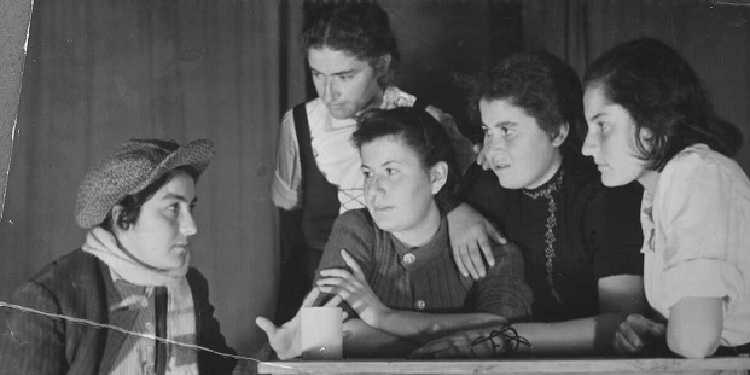‘I Went, for a Voice Called’
Stand for Israel | November 7, 2022

Found in a Nazi prison cell in Hungary near the end of World War II was the following bit of verse, written by someone named Hannah Szenes:
I could have been twenty-three next July
I gambled on what mattered most,
The dice were cast. I lost.
Those heartbreaking words could have been written by any of countless people killed during Hitler’s evil scourge. But these words were written by a woman from the Holy Land who is as familiar to Israeli schoolchildren as American war heroes may be in the U.S. Who was Hannah Szenes?
A Gifted Student
Born to a Jewish family in Hungary, Hannah Szenes’ father died when she was only six. Hannah attended a Christian school, where she was considered a “Gifted Student.” You can see young Hannah starring in a play in school, on the left, wearing a hat. As Hannah grew older, the situation in Europe for Jews grew precarious, and the girl embraced Zionism.
When Hannah graduated in 1939, she made aliyah (immigrated) to what was still British-mandate Palestine, joining both a kibbutz, as well as the Haganah, which would become the IDF. Later enlisting in the British Women’s Auxiliary Air Force in order to fight the Nazis in Europe, Hannah was sent to Egypt for paratrooper training.
A Daring Paratrooper
This training came in handy when Hannah and two others parachuted into Yugoslavia, where they joined a partisan resistance group and fought the Nazis. The two men accompanying her called off the mission, feeling it was too dangerous, but Hannah continued on to the Hungarian border.
At the border, Hannah was arrested by Hungarian Nazi sympathizers, who found her British military transmitter. She was put in prison, where she was beaten and tortured. Despite brutal interrogations, and the threat that her mother would be killed, Hannah refused to cooperate.
While jailed, Hannah flashed signals with a mirror to other prisoners and sent messages to those outside the prison. In October 1944, Hannah was tried for treason, and was executed on November 7, leaving the above poem as her final words.
A Poet, a Writer, a Hero
That should not have been surprising, as Hannah had always been a poet and a writer. The diary Hannah kept in prison was published after the war was over. Her remains were brought to her biblical and historic homeland, Israel, in 1950, where she was buried at the military cemetery on Mount Herzl.
One of Hannah’s poems, “A Walk to Caesarea,” was turned into a song used in the Holocaust film Schindler’s List:
My God, My God, I pray that these things never end,
The sand and the sea,
The rustle of the waters,
Lightning of the Heavens,
The prayer of Man.
But perhaps the most touching of Hannah’s poems, in light of her own answering the call to help her people, God’s people, Israel, begins:
A voice called, and I went.
I went, for a voice called.
